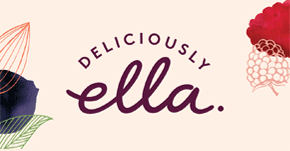
Fundamentals of a healthy diet:
- Reduce intake of processed foods and increase nutrient dense, whole plant foods.
- Protein: beans, peas, lentils, nuts, seeds, wholegrains, tofu, tempeh and dark green leafy vegetables.
- Healthy fats: nuts, seeds, avocado, olives, coconut (and their oils and butters).
- Low GI carbohydrates: buckwheat, quinoa, oats and starchy vegetables like sweet potato, squash, carrots and beetroot.
- Fresh fruits and vegetables: berries, apples, pears, plums, green vegetables, mushrooms, onions, aubergine etc.
- Diversity: every food has a unique mix of different fibres, vitamins, minerals, fats and amino acids (protein) so it is important to eat as wide a variety of these foods. Remember: ‘eat the rainbow’.
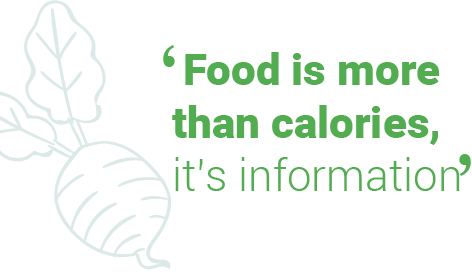
The Nutrition Gap
We recommend that everyone takes a food-based multivitamin and mineral to support optimal nutrient levels.
Learn more about the Nutrition Gap
We recommend that everyone takes a food-based multivitamin and mineral to support optimal nutrient levels.
Learn more about the Nutrition Gap
We all want to make sure that we are eating a balanced and healthy diet to support our health and vitality. Some nutrients of interest when following a plant-based diet, include:
| Nutrient | Functions | Plant-based Food Sources | Tracey’s Top Tips | Supplement |
|---|---|---|---|---|
| B12 | Supports nerve cell function; macronutrient metabolism and the utilisation of iron in the body | Some B12 can be derived from nutritional yeast, however supplementation is recommended to ensure that you are meeting your needs | This vitamin is not made by plants or animals but produced by bacteria in the soil. With the use of pesticides and because we tend to wash all of our fruits and vegetables, it can be hard to obtain adequate levels without supplementation | 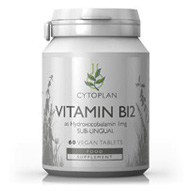 Vitamin B12 Hydroxo Sublingual Vitamin B12 Hydroxo Sublingual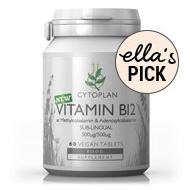 Vitamin B12 sublingual (as methylcobalamin & adenosylcobalamin) Vitamin B12 sublingual (as methylcobalamin & adenosylcobalamin) |
| Vitamin D | Assists with the maintenance of strong bones and teeth, supports immune and muscle function | Vitamin D is frequently referred to as the ‘Sunshine Vitamin’ as the sun is our main source of this crucial nutrient. Sunlight is necessary for the synthesis of this vitamin (which is produced underneath the skin following exposure to sunlight) | In the UK and other Northern Hemisphere countries, it is important to be aware of our vitamin D levels as many of us aren’t getting enough regular sun exposure to meet our needs | 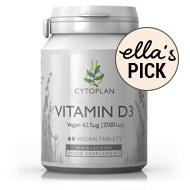 Wholefood High Potency Vegan Vitamin D3 Wholefood High Potency Vegan Vitamin D3 |
| Iron | Necessary for the formation of red blood cells and haemoglobin, reduction of tiredness and fatigue, immune and cognitive function | Legumes (lentils, tofu, chickpeas and black beans), wholegrains (quinoa, brown rice, oats), nuts and seeds (pumpkin, sesame, cashew), kale, dried figs, molasses | If you are low in iron, then I recommend combining a food-based iron supplement with some iron rich plant foods to bring your levels up gently and effectively. Foods rich in vitamin C like raw fruits and vegetables can also aid absorption |
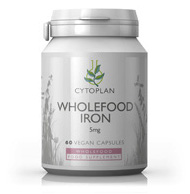 Wholefood Iron Wholefood Iron |
| Calcium | Needed for the maintenance of normal bones, muscle function, blood clotting, energy metabolism and function of digestive enzymes | Tofu, tempeh, kale, broccoli, almonds and sesame seeds (and their butters), molasses | Make sure that you are also getting plenty of vitamins D3, K2 and magnesium as these are important for helping calcium get to where it needs to go in the body | 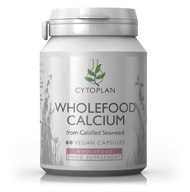 Wholefood Calcium Wholefood Calcium |
| Omega 3 | Omega 3 fatty acids are essential nutrients to support many aspects of health, including brain, heart and skin health | Walnuts, hemp, flax and chia seeds, spirulina, cooked Brussel sprouts, algal oil | EPA and DHA are the two active forms of Omega 3 within the body. Most plant sources of omega 3 contain ALA which requires conversion into DHA and EPA in the body. Algal oil is one of the few plant-based sources of active omega 3 | 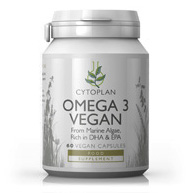 Omega 3 Vegan Omega 3 Vegan |
| Vitamin K | Blood clotting, heart and bone health | K1: green leafy vegetables K2: Natto (a Japanese fermented soybean dish) |
There are two types of vitamin K: K1 and K2. K1 is the preferred source to support blood clotting, while K2 has a more central role in getting calcium to where it needs to go in the body | 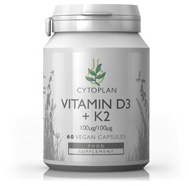 Vitamin D3 and K2 Vitamin D3 and K2 |
| Iodine | Helps to make thyroid hormones, contributes to normal cognitive and nervous system functioning | Sea vegetables | Try adding a plant-based sushi recipe to your meal rotation | 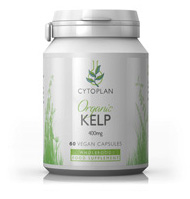 Organic Kelp Organic Kelp |
| Zinc | Supports hair, skin, nail and bone health; immune and cognitive functioning, macronutrient metabolism and normal fertility and reproduction | Legumes, nuts and seeds (especially pumpkin and sunflower seeds), oats and nutritional yeast | Boost your zinc levels by snacking on hummus or adding pumpkin seeds to your morning porridge | 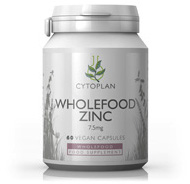 Wholefood Zinc Wholefood Zinc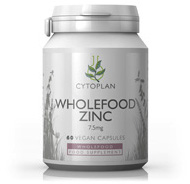 Zinc Citrate Zinc Citrate |
Pregnancy

To support her pregnancy, Ella switched to using Pregna-Plan; our comprehensive food-based prenatal multi-vitamin and mineral complex formulated for all stages of pregnancy and breastfeeding. It is suitable for preconception planning for women too.
*Disclaimer: if you’re unsure about which supplements to take, please call our dedicated customer service team or speak to a qualified Nutritional Therapist.

